The Dialogue across Indigenous, local and scientific knowledge systems reflecting on the IPBES Assessment on Pollinators, Pollination and Food Production report presents the main outcomes of a Dialogue across Indigenous, local and scientific knowledge systems that revisited and reflected on the key messages derived from the Assessment Report on Pollinators, Pollination and Food Production of the Intergovernmental Science-Policy Platform on Biodiversity and Ecosystem Services (IPBES). The Dialogue was hosted from the 21st to the 25th of January 2019 by the Karen community of Hin Lad Nai, Chiang Rai, Thailand, and it was co-convened and jointly designed by the Inter Mountain Peoples Education and Culture in Thailand Association (IMPECT) and Pgakenyaw Association for Sustainable Development (PASD) together with SwedBio at the Stockholm Resilience Centre and UNESCO Natural Science Sector.
An international dialogue with a diversity of participants
The Dialogue brought together 52 participants from 19 countries, including Indigenous and local knowledge (ILK) holders, ILK experts and scientists engaged in the IPBES Pollination Assessment, together with local Indigenous pollinator experts, and representatives from a number of local, national, regional and global institutions and UN agencies. To facilitate constructive interactions and joint learning the Dialogue used a walking workshop approach in the forest and rotational farming fields of Hin Lad Nai, guided by Karen elders and pollination experts from the community. In the field, participants revisited, reflected and jointly analysed selected key messages of the IPBES Pollination Assessment, drawing on their deep insights, experience and evidence from their respective Indigenous and scientific knowledge systems. Following a Multiple Evidence Base approach, the dialogue was designed to ensure equity, reciprocity and usefulness for all involved, and to promote trust for intercultural sharing, learning and knowledge co-production. Posters presenting the key messages were used as boundary objects for linking across diverse knowledge systems. Copies of these posters are available for download and further use here.
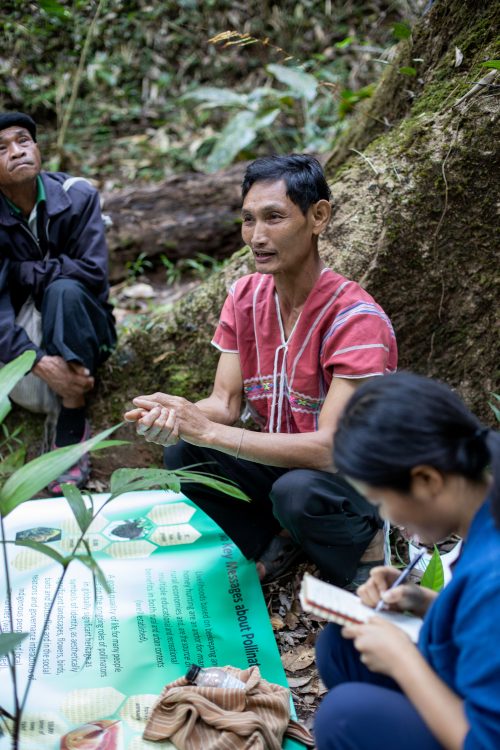
Photo: J. Bumroongchai
Pollinator and pollination are nurtured in the Hin Lad Nai diverse, biocultural landscape
The Hin Lad Nai community provided an excellent example of how pollinators and their habitats are promoted in a diverse landscape mosaic, and how bees and honey are a central part of reciprocal human-nature relationships underpinning spiritual, cultural, economic, and physical well-being. Similar examples of pollinator-friendly practices embedded into Indigenous landscape management and farming were shared by ILK holders from Antigua and Barbuda, Guatemala, India, Kenya, Myanmar, New Zealand, Panama and the Philippines. The Dialogue participants emphasised the importance of protecting diversified farming systems through the recognition of rights and tenure as well as strengthening customary governance based on ILK. This way, pollinators are supported as part of nature’s contribution to people and community wellbeing at large.
Participants appreciated that there were many aspects of critical importance from the perspectives of ILKS included in the Summary for Policymakers of the Pollination Assessment, and its key messages. In general, participants acknowledged the effort made by IPBES in recognising the contributions of Indigenous peoples and local communities (IPLCs) to support and conserve pollinators throughout the planet.
Recommendations for policy processes
A number of recommendations to improve and solidify the process in which IPBES engages with ILK in future assessments and uptake activities were made. A general observation, while discussing the Pollination Assessment, was that in ILKS, pollination is often not articulated as a phenomenon as such, but rather understood as one critical link between plants, animals and people in a wider holistic understanding. The discussions in the Dialogue suggested that the framing of key issues around pollinators and pollination, and responses to those, would put more emphasis on relational values, stewardship, ethics and notions of reciprocity and respect for the natural world.
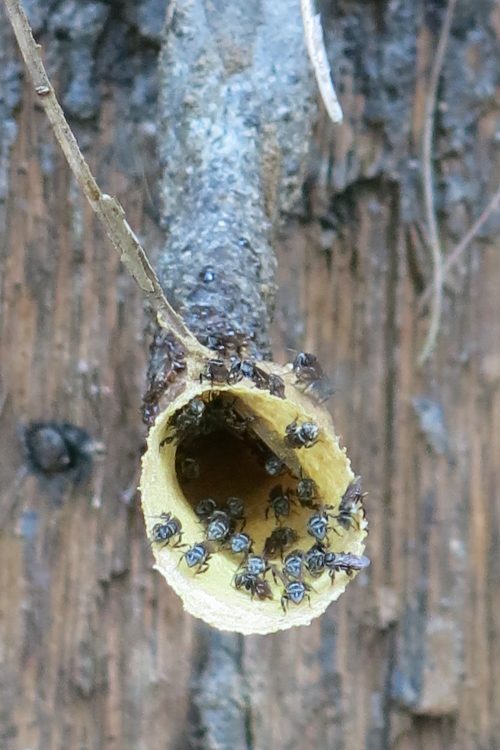
The threat of pollinator loss
As a reaction to the loss of pollinators, a very strong message came out from the discussions – the importance of supporting the diversified farming systems, adaptive management practices, livelihoods, good governance and diverse knowledge systems that are supportive of pollinators and pollinator habitats. A clear message, from the Pollination Assessment itself as well as from the Dialogue participants, is that these systems are in decline and threatened, and should be strengthened and supported. In this respect, tenure security and rights, which are fundamental to securing the continuation of those pollinator friendly practices and the knowledge systems that maintain them are often inadequate or missing. The Pollination Assessment’s recognition of tenure rights as a critical issue to maintain diversified, pollinator friendly agricultural systems, along with the ability to determine one’s own agricultural and food policies was well received and appreciated.
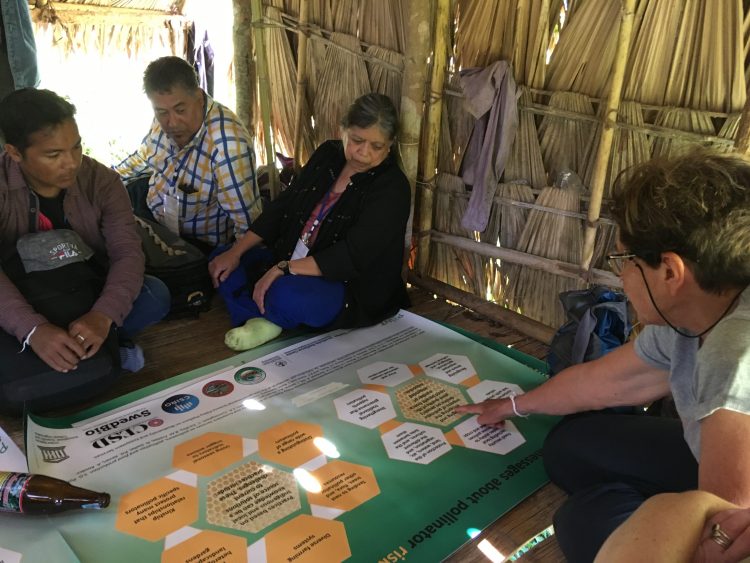
Potential ways forward
In the discussion on understanding conditions and trends for pollinators – many participants saw potential in sharing their data and observations, including to use technology, such as smartphones, to report data in a way that is mutually agreed. The Local Biodiversity Outlooks, a platform for Indigenous peoples and local communities to contribute their own achievements to the CBD Strategic Plan and Aichi Targets, is one opportunity to share data and monitoring. The importance of taking advantage of synergies between conservation and customary livelihoods and practices was repeatedly stressed. The “Special Cultural Zone” status of Hin Lad Nai as a good example of a step in this direction. It was highlighted that protected areas would benefit from maintaining and strengthening customary governance and cultural practices.
Conclusions from the dialogue
The Dialogue concluded by outlining a number of pathways to ensure uptake of the Assessment findings and in particular emphasising the contributions made by Indigenous peoples and local communities with their knowledge and practices, and through biocultural approaches to global pollination conservation and management. On the last day, an international seminar and IPBES uptake event was convened at Chiang Mai University (CMU), in collaboration with the Centre of Ethnic Study for Development (CESD) at CMU, to present the main findings of the Pollination Assessment and the outcomes of the Dialogue to a broad range of stakeholders in Thailand, including academics, Indigenous organisations, environment organisations, government officials and UN agencies. At the seminar, Thai government officials provided the types of policy development and action taken in support of the Assessment. The Dialogue and the seminar events were an experiment in connecting the assessment’s relevance and possible uptake in policy and practice at three levels at once: local, national and international. We conclude that it is possible to create this relevance at the local level, in ways that also have implications for national decision-making and international forums and processes. However, implementing the key messages of the SPM and reversing the serious decline in pollinators worldwide, will require interconnected changes in behaviour, policy, and practice across the diversity of structures and scales where policy and decision-making take place at different scales. The final discussions of the Dialogue brought forward the need for transformations: first of food systems towards sustainability; second of how biodiversity conservation practices views and engages with Indigenous peoples and local communities; and third of the relationships between knowledge systems for ecosystem governance towards respect and collaboration.
Shifting societies’ relationship with nature, one of the key messages in the SPM suggests, is fundamental to all three. Furthermore, as this report and the dialogue strongly demonstrate – considering the togetherness of nature and culture is a critical component of this paradigm shift, offering synergies for biological and cultural diversity, ecosystems and human wellbeing at large.
Learn more about the Hin Lad Nai workshop on the CSIRO website
The outcomes of the dialogue, its methods and its uptake in policy are presented and further discussed at several occasions at the margin of IPBES 7 in Paris 29 April – 4 May 2019.

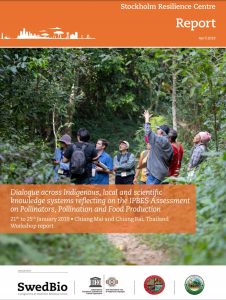 REPORT: Dialogue across Indigenous, local and scientific knowledge systems reflecting on the IPBES Assessment on Pollinators, Pollination and Food Production,
REPORT: Dialogue across Indigenous, local and scientific knowledge systems reflecting on the IPBES Assessment on Pollinators, Pollination and Food Production,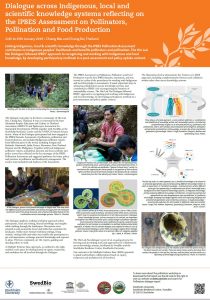 POSTER: Dialogue across Indigenous, local and scientific knowledge systems reflecting on the IPBES Assessment on Pollinators, Pollination and Food Production
POSTER: Dialogue across Indigenous, local and scientific knowledge systems reflecting on the IPBES Assessment on Pollinators, Pollination and Food Production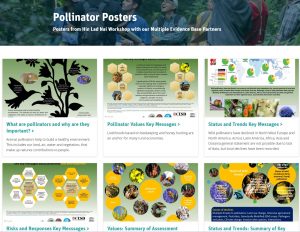 DOWNLOAD: Posters from Hin Lad Nai Workshop with our Multiple Evidence Base Partners
DOWNLOAD: Posters from Hin Lad Nai Workshop with our Multiple Evidence Base Partners Pernilla Malmer
Pernilla Malmer